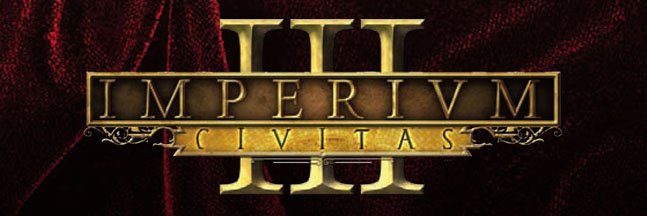As I said before, Imperium Romanum is a simple and enjoyable game. To casual gamers it’s an excellent game to introducing themselves to the Citybuilding world but, to more experience players, it’s not a big challenge. Haemimont is learning and I expect Imperium Romanum II to be a pleasant surprise.
To make the game more challenging and somehow similar to Roman society, I’ve some suggestions:
1) There should be different social classes, more or less, the same that historically composed the Roman society: Consuls, equites, common people, freedpleople and slaves;
2) Early on the game, there would be only common people and slaves. Common people would be tax both on their propriety (houses) and income (salary). Slaves would not be taxed as long they belong to the state.
3) Slaves could be bought later on by common people if they could afforded and, therefore, taxed like any propriety.
4) Production building like farms, which still belong to the state, would deliver their production to the points of sales (markets) and taxed when sold to people.
5) When your city reached to a certain population number, and ordered by the Senate, a “census” would be your mandatory task.
6) This “census” would be performed not by the state but to an appointed (recent) promoted equite or, if the city were appealing enough, to and foreigner equite(s) willing to join your city.
7) This equestrian class would also run your city industry employing common people and slaves. You could control the percentage their working force percentage by Decree. Too much working slaves cloud mean high unemployment (affecting the common people); too much common people ended on slave riots.
8) The equestrian class would bit (buy) your city industrial production, collect tax from people and their propriety and would delivered money to the state. The tax rate would be a percentage you control by decree. Tax to high, would lead to angry people, less profits to the equestrians and high inflation. Too low cold mean lower selling prices of products, less income to state, high stocks and an inevitable loss of degradable items.
9) Slaves could win their freedom, becoming freedpeople, if they achieved recognition on the arena (gladiators). Even more, they could be freed if they could afford to buy their freedom with their own savings (peculium).
10) When your city reached certain number of population and empire recognition, you’d be allowed to promote some city equits to senators or, if the city were appealing enough, to a foreigner senator(s) willing to join your city.
11) The senatorial class could own propriety like farms (initially in the game controlled by the state). They would be taxed on their propriety, their revenue (farms production) and their slaves.
12) If you join to the game random events like drought, inundations, earthquakes, riots, cut commercial routes due to war of sea storm (among others) , I’m sure this game would be quite challenging to hard citybuilding players.
If you think my suggestions are worth of your personal opinion, you are very welcome.
To make the game more challenging and somehow similar to Roman society, I’ve some suggestions:
1) There should be different social classes, more or less, the same that historically composed the Roman society: Consuls, equites, common people, freedpleople and slaves;
2) Early on the game, there would be only common people and slaves. Common people would be tax both on their propriety (houses) and income (salary). Slaves would not be taxed as long they belong to the state.
3) Slaves could be bought later on by common people if they could afforded and, therefore, taxed like any propriety.
4) Production building like farms, which still belong to the state, would deliver their production to the points of sales (markets) and taxed when sold to people.
5) When your city reached to a certain population number, and ordered by the Senate, a “census” would be your mandatory task.
6) This “census” would be performed not by the state but to an appointed (recent) promoted equite or, if the city were appealing enough, to and foreigner equite(s) willing to join your city.
7) This equestrian class would also run your city industry employing common people and slaves. You could control the percentage their working force percentage by Decree. Too much working slaves cloud mean high unemployment (affecting the common people); too much common people ended on slave riots.
8) The equestrian class would bit (buy) your city industrial production, collect tax from people and their propriety and would delivered money to the state. The tax rate would be a percentage you control by decree. Tax to high, would lead to angry people, less profits to the equestrians and high inflation. Too low cold mean lower selling prices of products, less income to state, high stocks and an inevitable loss of degradable items.
9) Slaves could win their freedom, becoming freedpeople, if they achieved recognition on the arena (gladiators). Even more, they could be freed if they could afford to buy their freedom with their own savings (peculium).
10) When your city reached certain number of population and empire recognition, you’d be allowed to promote some city equits to senators or, if the city were appealing enough, to a foreigner senator(s) willing to join your city.
11) The senatorial class could own propriety like farms (initially in the game controlled by the state). They would be taxed on their propriety, their revenue (farms production) and their slaves.
12) If you join to the game random events like drought, inundations, earthquakes, riots, cut commercial routes due to war of sea storm (among others) , I’m sure this game would be quite challenging to hard citybuilding players.
If you think my suggestions are worth of your personal opinion, you are very welcome.

No comments:
Post a Comment